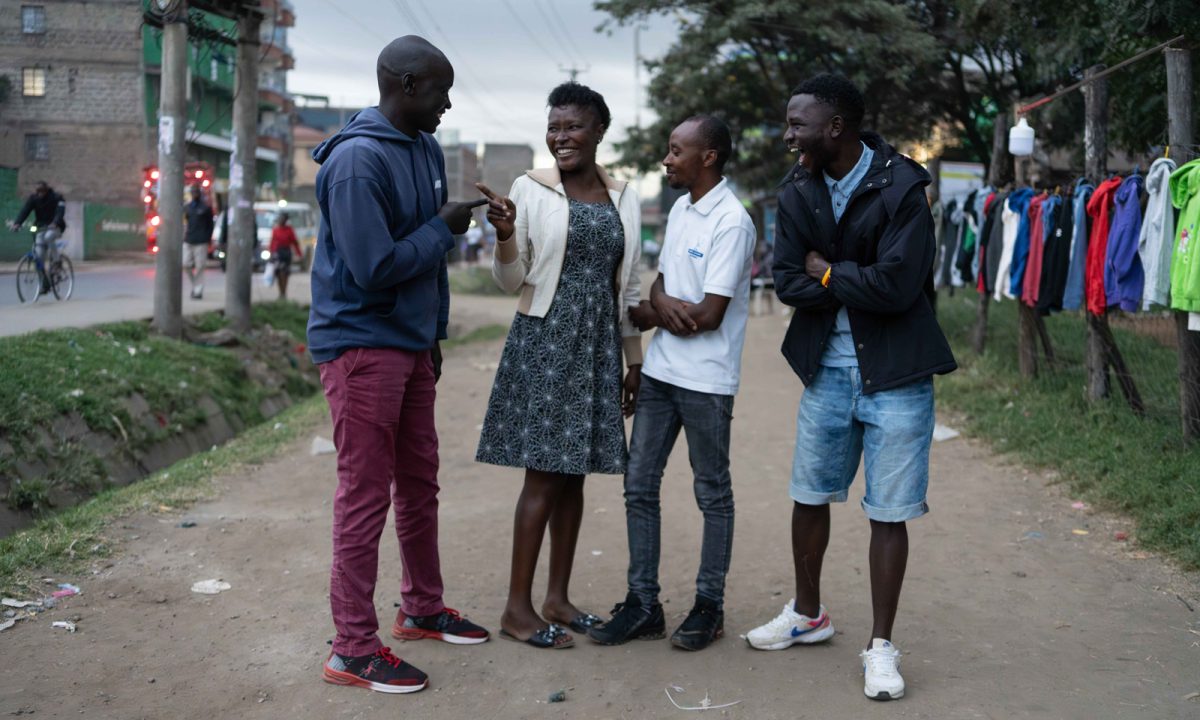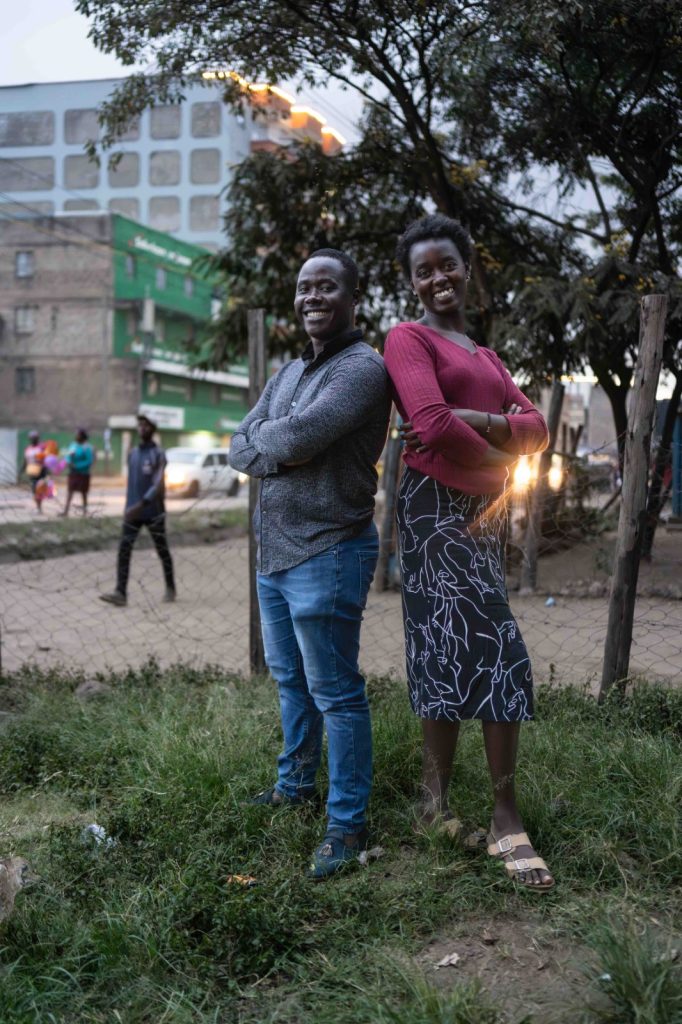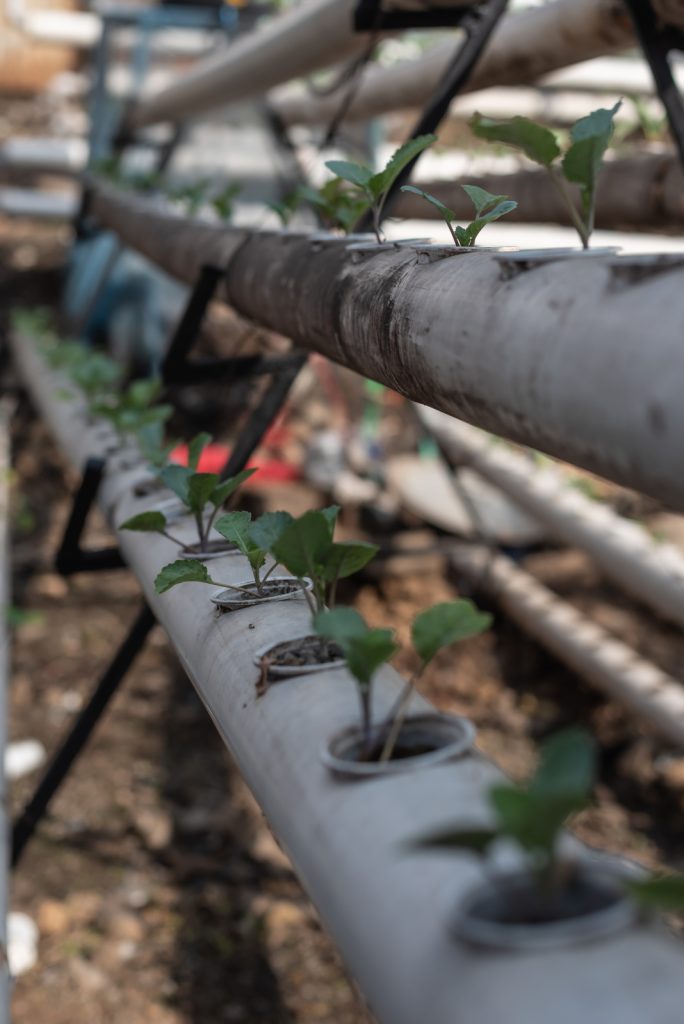
Agri Mtaani – Climate-smart farming by young people for young people in urban areas of Nairobi
November 5, 2025
Kaisa Strömberg
Sustainable urban farming offers concrete solutions in Kenya’s rapidly growing capital city. It provides livelihoods for young people in the poorest areas, increases food security, and supports the well-being of youth communities. Peer education accelerates the adoption of farming methods.
Sustainable farming methods from rural areas to cities
In 2021, climate-smart farming methods were introduced at the Kenya YMCA’s agricultural college in Limuru as part of YMCA Finland’s Youth, Peace and Livelihoods development cooperation program. Innovative farming has produced excellent results at the college: soil quality has improved, harvests are abundant and of high quality, and crops are more resistant to changing weather conditions.
Climate-smart farming techniques enhance food security, aid adaptation to extreme weather events caused by climate change, and foster biodiversity. However, their potential is not confined to rural regions – they can also be implemented in urban areas, where food security faces similar threats.
Urban farming responds to the challenges of urban areas
In 2023, the Kenya YMCA launched Agri Mtaani as part of the Finnish YMCA’s development cooperation programme. The aim of the project is to introduce climate-smart farming methods to the poorest and most vulnerable neighbourhoods in Nairobi. In these areas, soil and water resources are often polluted due to inadequate sewage systems and waste management, which undermines residents’ food security.
The Agri Mtaani project provides tangible solutions to urban problems. Urban farming enhances food security for individuals and communities, creates livelihood opportunities, and supports sustainable growth in cities. Simultaneously, urban farming fosters social well-being and boosts greenery in residential areas.
From youth to youth – peer educator model
The starting point for the project is a youth-to-youth approach. The first training group comprised 60 young people, some of whom now work as peer educators. The idea behind the model is that when a few representatives from each youth group are trained, they can share what they have learned in their own communities and thus reach an even wider group of young people.
The second training phase involves participants from 75 different groups operating in eight districts of Nairobi. Each peer educator is expected to train at least ten members of their group, thereby increasing the programme’s reach.
The peer educator model has proven successful: graduates train new participants free of charge, which promotes equality and community spirit. Additionally, each trained group creates a new urban vegetable garden, naturally spreading best practices and strengthening local food security at the grassroots level.


Concrete results encourage continuation
Felix Orwaka (above, on the left) serves as the team leader for the project, and Margaret Akello (above, on the right) as coordinator. Both have witnessed the positive impact of the project on those who have received training, as well as on their communities and environment. Vegetable gardens have appeared on vacant lots in the neighbourhood, and participants’ incomes have increased as they are able to sell the crops they grow.
”In the latest cohort trained, we were able to see opportunities that even surprised the participants themselves. One group was able to get 1,000 shillings in a day by selling kale. From zero to a thousand – that was a big blast!”
In the impoverished areas of Nairobi, a significant number of residents live on less than two euros a day. Earning 1,000 shillings (approximately €7) from selling kale is not only a financial milestone but also boosts young people’s sense of agency and optimism for the future. For many young people without stable employment or education, the income from urban farming can serve as the first step towards achieving an independent livelihood.
Contact us
Kaisa Strömberg
Programme Specialist
YMCA Finland
+358 41 544 8292
kaisa.stromberg@ymca.fi





